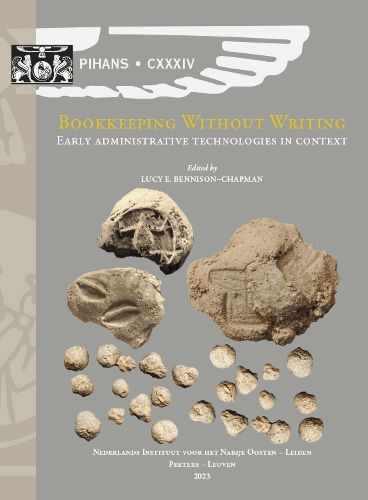Readings Newsletter
Become a Readings Member to make your shopping experience even easier.
Sign in or sign up for free!
You’re not far away from qualifying for FREE standard shipping within Australia
You’ve qualified for FREE standard shipping within Australia
The cart is loading…






Bookkeeping without Writing: Early Administrative Technologies in Context explores how non-literate systems of information storage were used in the late prehistoric and early historic periods in West Asia, before and alongside writing. The world's earliest known written script, cuneiform, emerged as the bureaucratic tool of administration in the city-states of south Mesopotamia during the late fourth millennium BC. The invention of writing had a profound impact on daily life, as it enabled the efficient management and control of agricultural production, craft production, labour, and rations as wages. Writing has traditionally been viewed as one of the hallmarks of 'civilisation', alongside features such as permanent urban settlements, monumental architecture, social hierarchy and the presence of political and religious institutions. Writing is seen as necessary for complex society to operate and succeed, yet is this really the case? Are there alternatives? Non-written forms of information storage and transmission are known in West Asia from the Late Neolithic (ca 6000 BC) onwards. Crucially, they continue to be used, once writing is established and widespread, so cannot be dismissed as simple, primitive and ineffective forms of administration simply supplanted by writing. In other world regions and time-periods, a variety of non-literate forms of information storage are known. There are large, successful, and complex societies which do not use writing at all, instead thriving with alternative forms of information storage and transmission. This multidisciplinary book brings together papers from various specialists to explore how non-literate forms of information storage were used in West Asia from the Late Neolithic, and why they persisted into the first millennium BC. This is complimented by a range of comparative archaeological and historical examples of complex, non-written administrative systems from the ethnographic and historical record including ancient Egypt, Medieval Europe, Medieval West Africa and South America.
$9.00 standard shipping within Australia
FREE standard shipping within Australia for orders over $100.00
Express & International shipping calculated at checkout
Bookkeeping without Writing: Early Administrative Technologies in Context explores how non-literate systems of information storage were used in the late prehistoric and early historic periods in West Asia, before and alongside writing. The world's earliest known written script, cuneiform, emerged as the bureaucratic tool of administration in the city-states of south Mesopotamia during the late fourth millennium BC. The invention of writing had a profound impact on daily life, as it enabled the efficient management and control of agricultural production, craft production, labour, and rations as wages. Writing has traditionally been viewed as one of the hallmarks of 'civilisation', alongside features such as permanent urban settlements, monumental architecture, social hierarchy and the presence of political and religious institutions. Writing is seen as necessary for complex society to operate and succeed, yet is this really the case? Are there alternatives? Non-written forms of information storage and transmission are known in West Asia from the Late Neolithic (ca 6000 BC) onwards. Crucially, they continue to be used, once writing is established and widespread, so cannot be dismissed as simple, primitive and ineffective forms of administration simply supplanted by writing. In other world regions and time-periods, a variety of non-literate forms of information storage are known. There are large, successful, and complex societies which do not use writing at all, instead thriving with alternative forms of information storage and transmission. This multidisciplinary book brings together papers from various specialists to explore how non-literate forms of information storage were used in West Asia from the Late Neolithic, and why they persisted into the first millennium BC. This is complimented by a range of comparative archaeological and historical examples of complex, non-written administrative systems from the ethnographic and historical record including ancient Egypt, Medieval Europe, Medieval West Africa and South America.